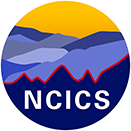CISESS Continues as NOAA Big Data Project Data Broker
Building on the success of the Big Data Project, NOAA announces new collaborative agreements with Amazon Web Services, Google Cloud, and Microsoft. Through its NOAA Cooperative Institute, the North Carolina Institute for Climate Studies (NCICS) will continue to play a key role in expanding access to critical environmental information by delivering NOAA data to these cloud providers.
December 20, 2019: For Immediate Release
Asheville, NC – Yesterday, the National Oceanic and Atmospheric Administration (NOAA) announced new agreements with three major cloud computing providers that will provide the public with fast, no-cost access to a wide range of NOAA’s environmental datasets. Through separate agreements with Amazon Web Services (AWS), Google Cloud, and Microsoft, NOAA is expanding public access to critical datasets, including satellite observations, radar data, outputs from weather models, and more.
These agreements mark a new phase in NOAA’s Big Data Project (BDP), which is already transforming the way users access NOAA data. The Cooperative Institute for Satellite Earth System Studies (CISESS), hosted by NCICS, is a key partner in the BDP. We provide scientific and technical expertise along with critical information technology infrastructure and data management to facilitate continuous, near-real-time delivery of many large NOAA datasets to various cloud providers. The data are hosted in the cloud at no cost to end users, who pay only for processing time required to analyze data.
CISESS is currently facilitating the near-real-time transfer of more than a dozen datasets, including NEXRAD Levels 2 and 3 radar data, GOES-16/17 satellite data, National Water Model, Global Ensemble Forecast System (GEFS), Global Forecast System (GFS), and other datasets to several cloud platforms, including Amazon Web Services, Google Cloud Platform, IBM NOAA Earth Systems Data Portal, Microsoft Azure, and the Open Commons Consortium.
“This is an important next step in moving cloud-based information forward for the public- and private-sector users. North Carolina State University is pleased to be supporting this cutting-edge partnership with the federal government and private enterprise,” stated Dr. Otis Brown, Director of the Cooperative Institute for Satellite Earth System Studies.
By providing these large environmental datasets in the cloud, the BDP relieves users from having to locate, access, and store the data themselves. The BDP has already resulted in significant increases in the number of users accessing many NOAA datasets.
The BDP was recently recognized with a Government Innovation Award in the Public Sector Innovations category. The Public Sector Innovations award, given by Public Sector 360, focuses on “transformative tech that is truly reinventing government” and on “innovative ways tech is being leveraged to make government function better.” A key aspect of the BDP project so far is the partnership between the federal government, the private sector, and the academic research sector. This partnership involves coordination between federal civil servants, federal contract employees, and CISESS staff.
Dr. Brown noted that “The award is a wonderful recognition of the federal–contractor–cooperative institute team that made the NOAA BDP a success.”
Media Contact Tom Maycock Science Public Information Officer NC State’s North Carolina Institute for Climate Studies tmaycock@ncics.org 828-271-4272
